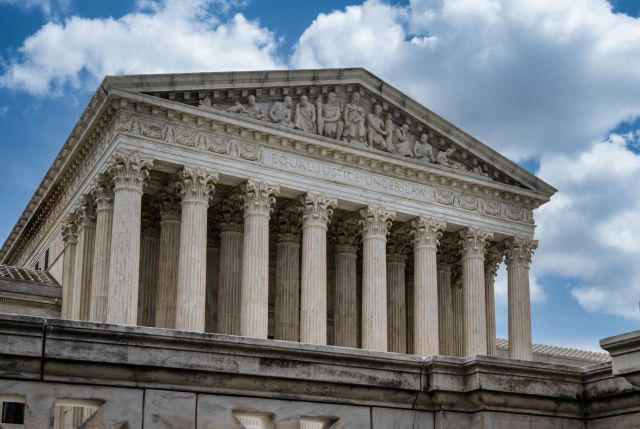Apollo Theatre In Belvidere Begins New Chapter After Family ‘Put Their Heart And Soul’ Into Repairs
September 15, 2023 at 9:09 pm Updated: September 18th, 2023 at 9:44 am Kevin Haas
By Kevin Haas
Rock River Current
Get our mobile app
BELVIDERE — The Apollo Theatre began a new chapter on Friday, and it started with owner Maria Martinez delivering an emotional statement from the event space where the roof collapsed during a tornado more than five months ago.
“First and foremost, I would like to express my deepest condolences to everyone who was at the Apollo on night of the tornado,” Martinez said, pausing several times during her prepared remarks to gather her emotions. “I would like to ask that we pause and take a moment of silence for those who were injured, namely for Fred Livingston Jr. who tragically passed away during the disaster.”
Martinez and her family marked the relaunch of The Apollo Theatre, 104 N. State St., during a private event Friday night. On Saturday, the 101-year-old theater will host its first public event since an EF-1 tornado struck during a heavy metal concert March 31, injuring dozens and killing Livingston Jr. He was 50 years old.
Martinez said the work was paid for through insurance and personal funds.
“My entire family, especially my husband, Jesus, has put their heart and soul into cleaning, repairing, and restoring this beautiful historical building so that our community may continue enjoying events and celebrations here for a long time,” she said.
Her speech was met with a standing ovation from family, friends and supporters gathered at the theater Friday while she stepped away to tearfully embrace her family.
“Maria and her family has put not only their personal resources to it, but they put their heart and soul. This is part of their community and their life,” said Pamela Lopez-Fettes, executive director of Growth Dimensions. “This is not a venue that she looks to make a lot of money on. … She does this because this is where her heart is, and this is what she wants to do for her community.”
)
The reopening came after the family quietly worked on the building for months. They haven’t conducted interviews or offered many public statements, likely to be careful with their words after several lawsuits have been filed by people injured in the collapse.
For people at Friday’s event, the work spoke for itself.
“They changed the colors. They’ve brightened it up a bit,” Lopez-Fettes said. “They’ve improved the overall atmosphere.”
There was also some character added to the second-story archways that flank both sides of the space above the stage. Jesus Martinez crafted decorative doors that covered some of the damage in a way that fit into the existing archway.
State Sen. Steve Stadelman, a Democrat from Loves Park, said that when he saw the facility the day after the storm, there was speculation that too much damage had been done and it could be torn down.
“It’s incredible. As someone who was here the day after the tornado moved through, and saw what this place looked like to where it’s at now,” Stadelman said. “I never would’ve believed that several months later they’d be holding a gathering here tonight and entertainment will soon be here again.”
The first public event is a free musical celebration Saturday coinciding with Mexican Independence Day. There are four bands and a DJ, and the event begins at 8 p.m. There are also concerts on the schedule for Sept. 29 and Oct. 6.
“When news of the tornado broke there were messages of concern from all over the country, probably all over the world as well,” Stadelman said. “You had people in Texas, California, other parts of the world that expressed their sympathies and were concerned about the future of this building. That’s the type of attraction it’s become in this region.”
Full statement
Here is the full statement Maria Martinez delivered during Friday’s private event.
“First and foremost, I would like to express my deepest condolences to everyone who was at the Apollo on night of the tornado. I would like to ask that we pause and take a moment of silence for those who were injured, namely for Fred Livingston Jr. who tragically passed away during the disaster.
“My entire family, especially my husband, Jesus, has put their heart and soul into cleaning, repairing, and restoring this beautiful Historical building so that our community may continue enjoying events and celebrations here for a long time!
“Thanks to Country Financial insurance we were able to quickly begin the long process of restoring the Apollo. Unfortunately, there have been no disaster relief funds available from the state or federal level. The remaining work was completed using personal funds and made possible thanks to the work done by my family and friends. I thank the community and the city of Belvidere for helping to facilitate these efforts.”
This article is by Kevin Haas. Email him at khaas@rockrivercurrent.com or follow him on X at @KevinMHaas or Instagram @thekevinhaas and Threads @thekevinhaas
See the photos from this article by going to original at: https://www.rockrivercurrent.com/2023/09/15/apollo-theatre-in-belvidere-begins-new-chapter-after-family-put-their-heart-and-soul-into-repairs/


 WQRF Rockford
WQRF Rockford






